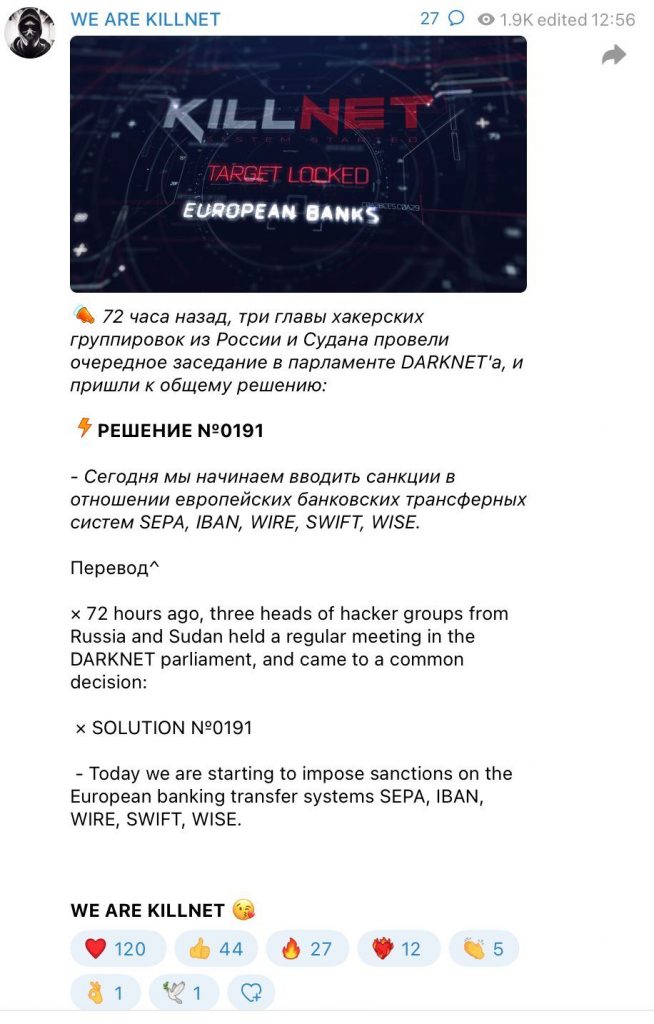Telegram, initially praised for its privacy and security features, is now facing scrutiny as it becomes a hub for illegal activities, similar to traditional darknet markets. The platform finds itself balancing between user privacy and the unintended consequences of being used for illicit dealings, prompting a reevaluation of its role in digital communication and law enforcement’s approach to digital crime.

In recent years, the messaging app Telegram has grown from a privacy-focused communications platform service into one of the world’s leading social media platforms. With its trustworthy encryption, ease of use, and commitment to user privacy, Telegram has attracted millions of social media users, all over the world in recent years.
However, this rapid growth and the very features that have made it popular have also led to it being in the spotlight and having criticism, with some labeling it the new ‘dark web’ because of its use for illegal activities. This article explores Telegram’s two-faced identity as both a mainstream communication tool and a platform potentially misused for illegal purposes.
Telegram is known for its accessibility and user-friendly interface, making it a popular choice for general communication, but it offers less anonymity compared to the Tor Browser. In contrast, the Tor Browser is designed for maximum anonymity and security, making it better suited for private browsing despite its more complex setup and slower speeds.
| Feature | Telegram | Tor Browser |
|---|---|---|
| Accessibility | Highly accessible and user-friendly, available on most smartphones and PCs. | Requires specific knowledge to access and navigate, with additional setup. |
| User Interface | Simple and intuitive, similar to other messaging apps. | Complex for new users, tailored towards anonymity and security. |
| Speed | Generally faster due to less encryption layers. | Slower due to the routing of traffic through multiple nodes for anonymity. |
| Anonymity | Offers user anonymity but not to the extent of Tor; relies on phone numbers. | Designed specifically for anonymity, hiding users’ locations and usage. |
| Communication | Direct and instant messaging capabilities. | Not primarily a communication tool; used to access websites anonymously. |
| Popularity | Widely used globally for various purposes, not just darknet activities. | Primarily used for accessing the dark web and ensuring privacy. |
| Content Sharing | Easy to share files, messages, and media. | Not optimized for file sharing; more focused on anonymous browsing. |
| Surveillance Risk | Lower for general communication, but not immune to monitoring. | High level of protection against surveillance and tracking. |
| Legality | Legal in most countries, but misuse can lead to legal issues. | Legal to use, but accessing certain content can be illegal. |
| Network Size | Vast network of users not limited to darknet activities. | Smaller, more niche user base focused on privacy and anonymity. |
While Telegram offers ease of use and speed, the Tor Browser provides superior anonymity and security. It depends how you see it.
The Rise of Telegram
Telegram was launched in 2013 by Russian siblings Pavel and Nikolai Durov. The Durovs were already known for their previous social media venture known as, VKontakte (VK), which was Russia’s answer to Facebook, and sought to create a space where conversations could remain confidential and safeguarded.
This is where the idea of Telegram was created with a vast suite of privacy features, including end-to-end encryption that ensures only the communicating users can read the messages, self-destructing messages that disappear after a set time, and secure file sharing, which allows users to exchange information without fear of interception, or simply being hacked.
Beyond its commitment to security, Telegram differentiated itself by offering certain functionalities that catered to a much broader audience. This makes it ideal for OpSec. This meant that large public groups and channels could accommodate thousands of users, making it an ideal platform for broadcasting messages to vast audiences. This capability has not only attracted the average user, who leverages the platform to organize and spread their messages under oppressive regimes, but also educators, public figures, and businesses looking to connect with their communities on a secure platform.
Telegram’s Darknet Evolution
Telegram, launched with the simple intention of safeguarding user privacy through features like end-to-end encryption and messages that vanish after a set period, has unexpectedly become a drawing point for darknet markets and forums.
These privacy protections, while crucial for securing personal communications, unknowingly created an ideal environment for secret illegal dealings and discussions often associated with darknet forums. With law enforcement intensifying efforts to break down traditional darknet marketplaces, leading to their frequent shutdowns, a sudden shift has occurred.
Vendors and buyers, looking for a new platform that offers both safety and anonymity, are turning to Telegram. This shift is based on the app’s reputation as a secure platform, where users can engage without the fear of interruption by the authorities. As a result, Telegram finds itself at a crossroads, navigating the fine line between privacy advocacy, which was its main selling point, and the unintended use of illegal activities.
The Appeal to Darknet Users
Telegram’s simplicity and easy access have made it popular among those involved in the darknet’s-underground operations. Unlike the traditional dark web, which requires navigating through complex networks using special browsers like Tor, Telegram offers a much easier and straightforward gateway to get the job done.
Anyone with a smartphone or computer can quickly join channels and groups dedicated to the trade and sale of illegal items, from drugs to fake money and even hacking services. This convenience has transformed Telegram into a full-blown marketplace for those looking to conduct their business away from the authorities, all without the need for the complex methods of hiding their illegal activities typically associated with darknet dealings.
Challenges in Regulation and Enforcement
Telegram’s involuntary move into the dark web dealings has put regulators and law enforcement in a tough spot. The app’s dedication to keeping user conversations private, along with its use worldwide, makes it hard for authorities to keep an eye on and stop all illegal activities. Law enforcement agencies are starting to implement digital traps within Telegram to bring a stop to the growth of criminal activities by catching Dark Web users in the act.
Though Telegram tries to shut down public groups that break the law, private, encrypted chats remain a grey area where illegal transactions can still take place. This secrecy protects user privacy but also makes it a safe space for those with bad intentions, creating a real challenge to those trying to police the platform.
Adding to the difficulties is Telegram’s global presence, which means that tackling these issues requires countries to work together, whilst working with the different laws and regulations.
The Response from Telegram
While trying to keep true to its core values of privacy and freedom of speech while also fighting to make sure its platform doesn’t become a platform for illegal activities. The company has been careful in its approach, mainly targeting and removing content that’s openly against its rules.
At the same time, it stands firm on protecting user privacy and the encryption that keeps chats private. This stance puts Telegram at the heart of a bigger conversation about the role of digital platforms in society.
The question is how to offer powerful tools for communication that can do good but also have the potential for misuse. Telegram’s efforts to tackle this dilemma reflect the challenges all tech companies face in today’s digital age.
Conclusion: A New Era for Digital Underworlds
As traditional dark web marketplaces become less accessible and secure, platforms like Telegram offer a new frontier for illegal trade.
This development raises critical questions about the future of digital privacy, the responsibilities of tech companies, and the ongoing battle between law enforcement and the evolving landscape of online crime. As Telegram continues to navigate these difficult times, the solution to this problem will have far-reaching implications for users, authorities, and the digital community.

Hey there, I’m a dark web geek who’s been around for the last 8 years. More precisely, I’m livedarknet’s senior content writer who’s been writing about darknet marketplaces, tutorials, and cybersecurity stuff for educational purposes.

